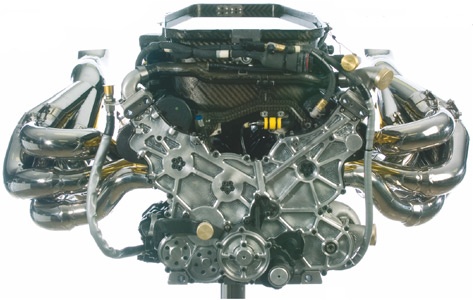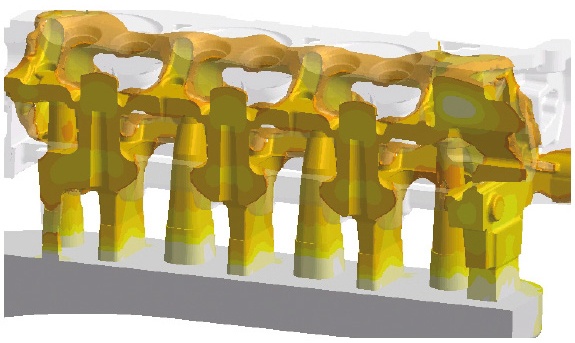Grainger & Worrall: Racing to Success
There are few more iconic images of modern engineering excellence than an F1 racing car. The cars and the whole industry behind them are a heady mix of extremes.
A dry-weather F1 tire will reach temperatures of over 900oC. When an F1 driver hits the brakes, he and the car experience deceleration comparable to a regular car driving through a brick wall, and that on every bend of every lap. We expect our car engines to last us for a decent 10 years. F1 engines are pushed to perform and may only last 10 hours of racing before blowing up. Without aerodynamic down force, high-performance racing cars have sufficient power to produce wheel spin at 160 km/hour and would simply take off like a plane. But it’s not magic – it’s the power of human imagination and engineering skill.
Behind the globetrotting circus that is top class motor racing, there are many companies and individuals who make it happen. While there are not many castings on an F1 car and not many cars, the ones that do get used have to be the very best the foundry industry can produce. There are not many companies in this market either, but one of the few is Grainger & Worrall. Based in Bridgnorth, Shropshire, England, the company is a 3rd generation family-owned business. Started in the 50’s as a pattern making partnership, these key skills remain one of the cornerstones of today’s success. In 2008 the company completed and delivered over 250 new complex component projects. For each one of these projects a pattern will have to be made, a casting technique chosen, a mould made, poured, knocked out, the casting inspected, machined and a quantity shipped. Grainger & Worrall’s strengths are the ability to produce one-off’s and small volumes of castings quickly, in aluminum and cast iron using conventional sand and the Cosworth Casting process. For their prototype, autosport and small production volume customers, time is often the key - it’s a race to the delivery date, which is sometimes only 2 weeks from the placement of an order.
While the company has maintained its core skills in pattern making, methoding, metallurgy and casting technology and design, the last decade has seen the implementation of all the tools and techniques available to reach the peak of excellence and win the race to the delivery deadline. The full range of CAD/CAM tools are in use, including a 4-core parallel license of MAGMASOFT®, MAGMAiron and MAGMAstress. In order to use customer CAD data, Grainger & Worrall naturally has a strong set of CAD skills to manipulate 3D models and concept design so that pattern tooling can be made quickly. By using simulation, time and money can be saved by getting it right first time. Methods engineers are often faced with the choice between a simpler and cheaper pattern or a more complex method. These decisions are made at Grainger & Worrall using MAGMASOFT®. The company also had the first CT scan machine in a UK foundry, which allows both the metallurgical quality and dimensional accuracy of its castings to be checked to the highest level.
The investment in both traditional skills and new technology has enabled the company to significantly increase sales turnover in recent years. But once this week’s race has been run and another one-off or small batch of castings delivered on time, there’s no time to rest. The race for success goes on with another order and another customer deadline to meet or beat.


